Our Model
Partner With the Community
Collaborating with the community is key to our success. We partner with villagers, local leaders, and government officials to create tailored plans that address each community’s most pressing needs.
Meeting With Children and Their Caregivers and Community
Our first step in a new ward is to listen to the children. We host Future Search Meetings where children from each village share their stories and then focus on the challenges they face related to education (lack of school uniforms, teachers, textbooks, etc.); health (lack of HIV/AIDS information and knowledge, distance from medical facilities, prevalence of diseases such as malaria, etc.); and care and support (death of parents, poverty of guardians, lack of adequate farm inputs, etc.). We then listen to the children’s caregivers, village leaders, and local government officials, and together we prioritize strategies moving forward.
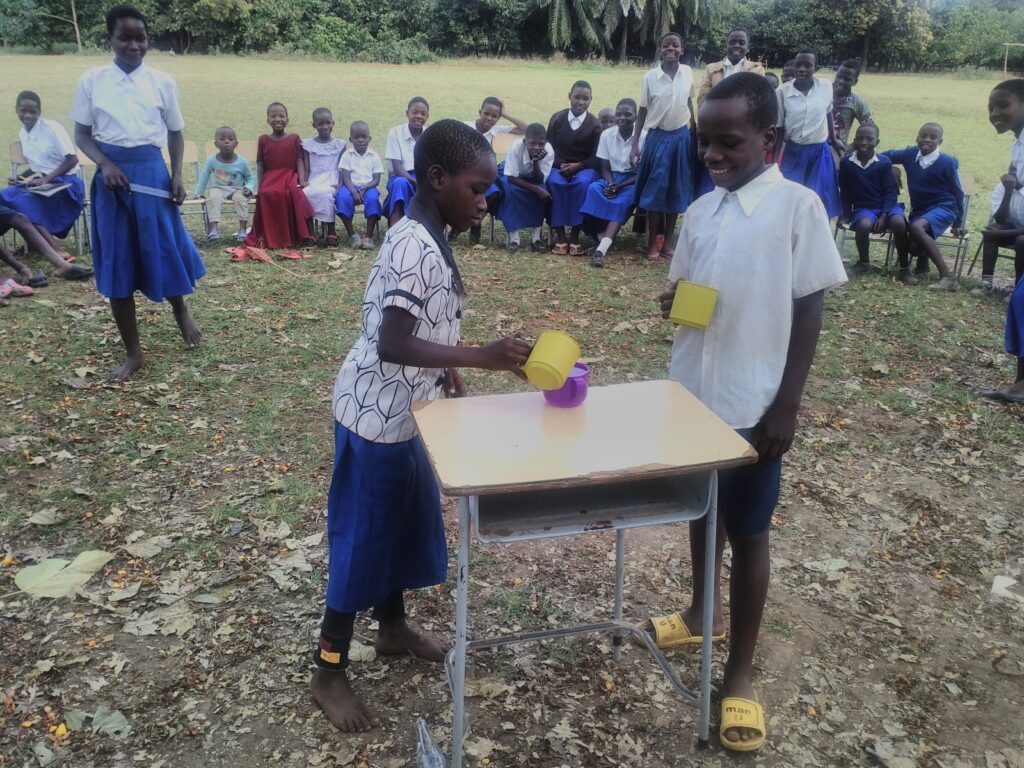
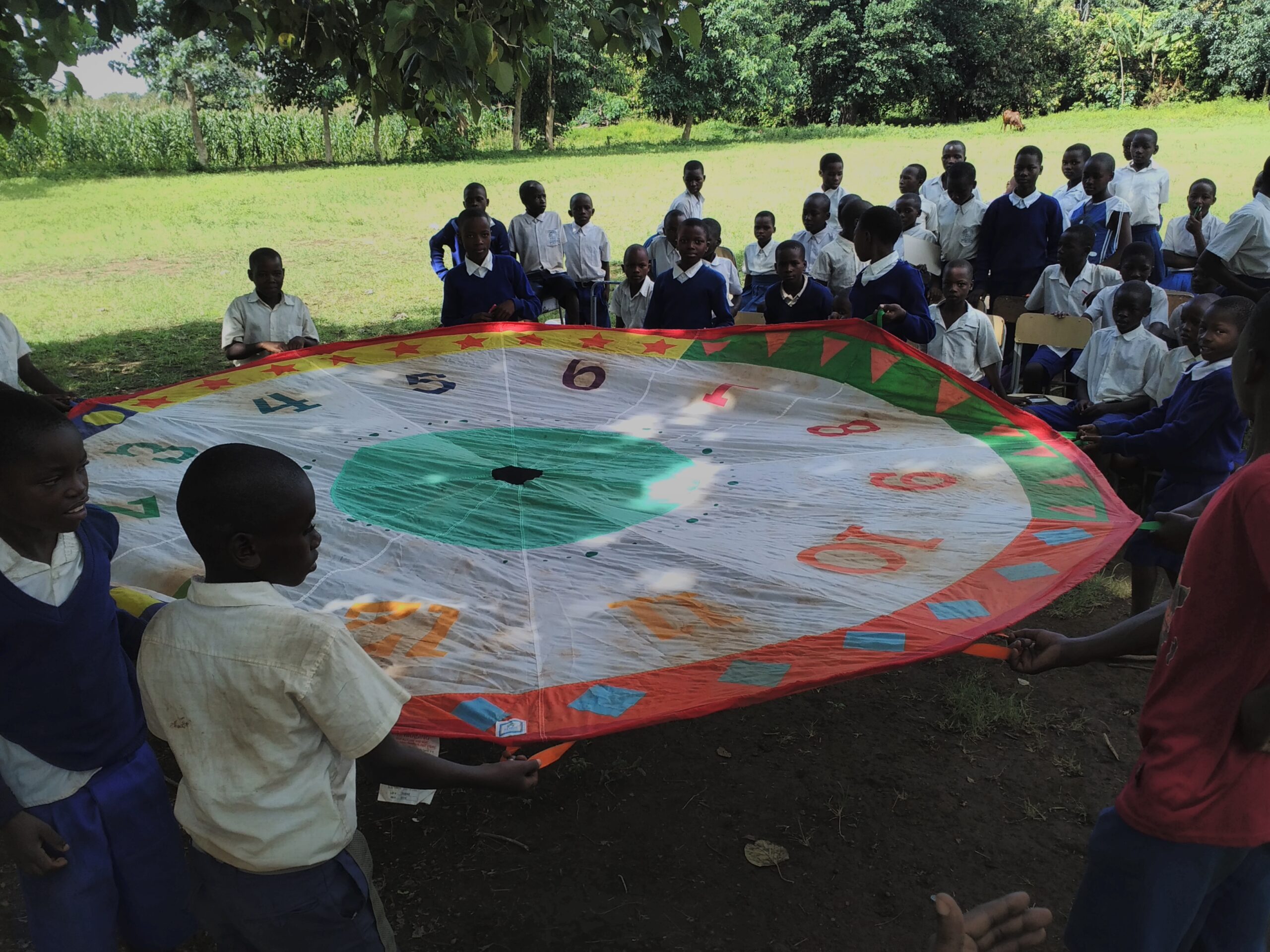
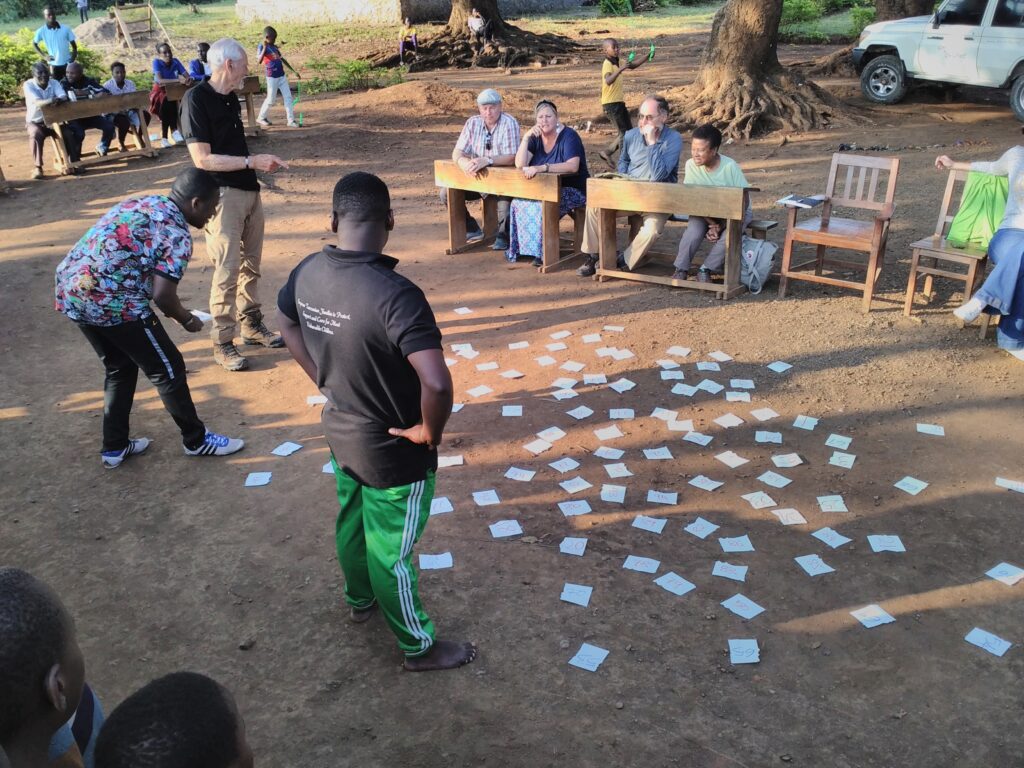
You are the future of your village, East Africa, and the world. It is most important that your voice is heard.”
Barry Childs speaking to the children of Idweli village
Establishing a Ward Steering Committee and Developing a Work Plan
We work with villages to form a supervisory Ward Steering Committee for the project comprised of Africa Bridge staff, government officials, and village representatives (including children) nominated by community members. We then work with each village to develop a sustainable work plan that will enable communities to provide the best possible future for their vulnerable children.
There are two parts to our unique program model:
Social Development
Most Vulnerable Children’s Committees (MVCCs)
Africa Bridge creates village MVCCs, which manage livestock and co-op memberships and identify and support the Most Vulnerable Children (MVC) we serve. Our local staff trains MVCC members in social services, life skills, and organizational management. This process helps to build local capacity. Committee members visit the MVCs and their families regularly to provide psychosocial support and monitor their progress. They also provide paralegal services, dispute resolution, and co-op monitoring. Women make up at least 50% of the MVCCs—our focus on empowering village women is key to raising the income levels of families and key to our success. In 2016, we added Empowerment Facilitators (EFs)—community members from the villages we work with—who implement and enhance project activities, including serving as a link between Africa Bridge staff, MVCCs, and communities.
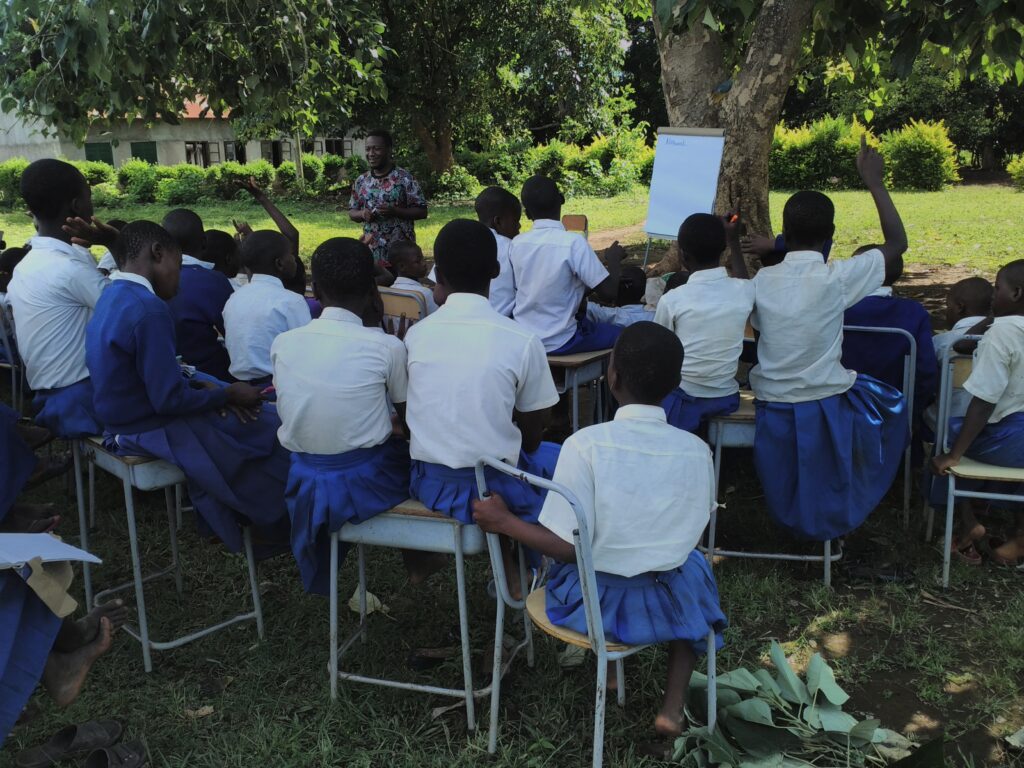
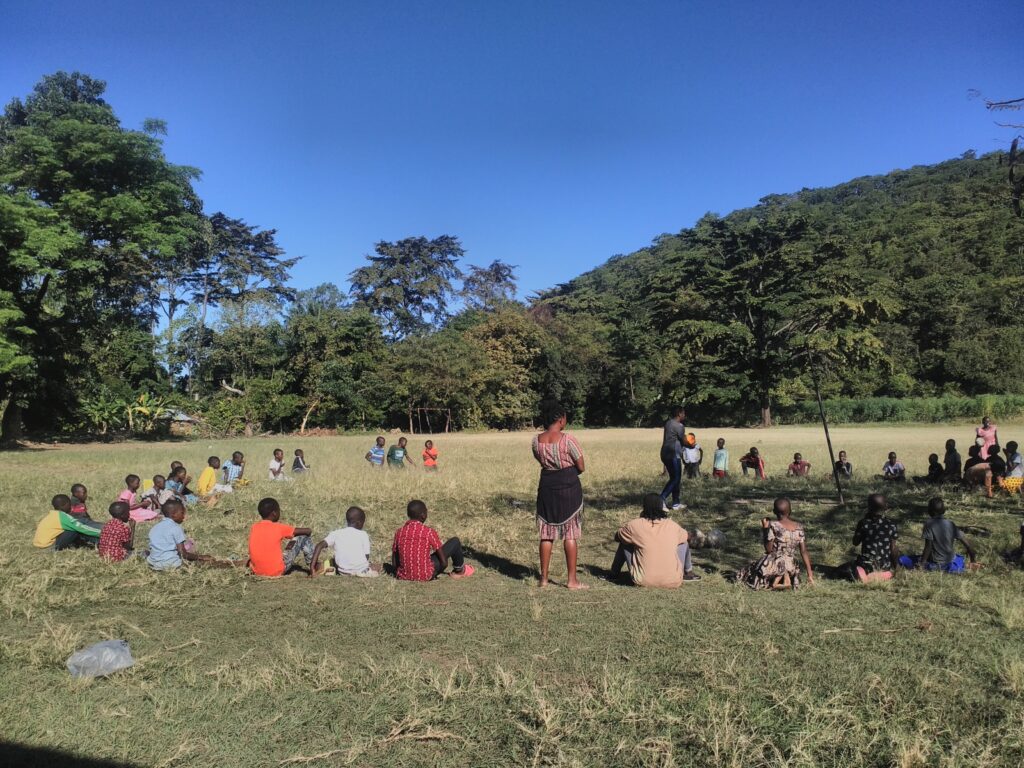
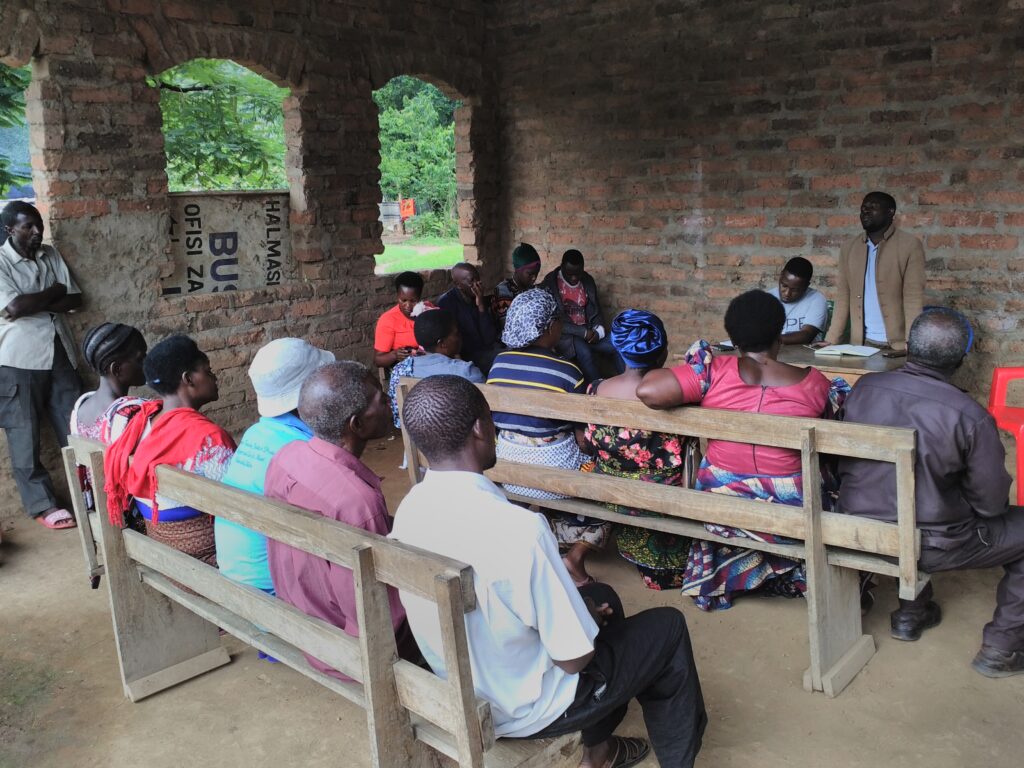
Education, Psychosocial, and Health Support for Children
Sustainable, integrated development requires comprehensive, holistic solutions. For most rural areas, access to healthcare and education is just as important as economic opportunity and social support. Africa Bridge increases access to education by building school infrastructure, providing students with uniforms and supplies so they can attend school, and making grants to the MVCCs so they can provide educational—as well as psychosocial and material—support to children and their families. We establish children’s clubs that serve as gathering places and sources of education and support for children and their caregivers. We train peer health educators to provide education on key health topics such as HIV/AIDS and reproductive health.
Economic Development
Income Generating Cooperatives
Africa Bridge opens a pathway to economic independence for MVC caretakers by establishing crop and livestock co-ops (usually two per village).The MVCC conducts a transit walk (census) of the villages in order to establish which households care for MVC. This census enables the MVCCs to identify which vulnerable families will be the founding members of the co-ops. Africa Bridge then provides assets such as cows to co-op members along with training. Recipients learn how to care for cows or chickens (e.g., disease management for cows, building nest boxes for chickens) and/or avocado trees (e.g., increasing soil biodiversity to encourage healthy, abundant growth of the trees and grafting Haas avocado trees to local ones). Participants also contribute (e.g., villagers provide nails and other supplies to build nest boxes). These co-ops help families caring for MVCs to earn a stable income. Families owning a cow have milk to drink and sell and manure for their crops. Those with avocado trees have a nutrient-rich food that can also be sold to generate income.
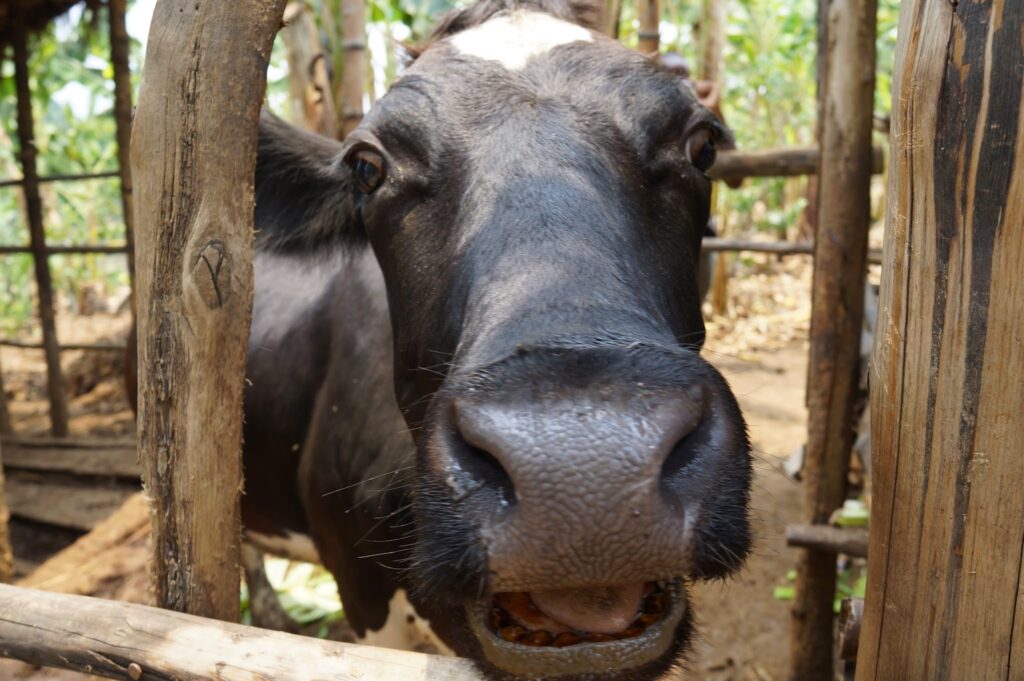
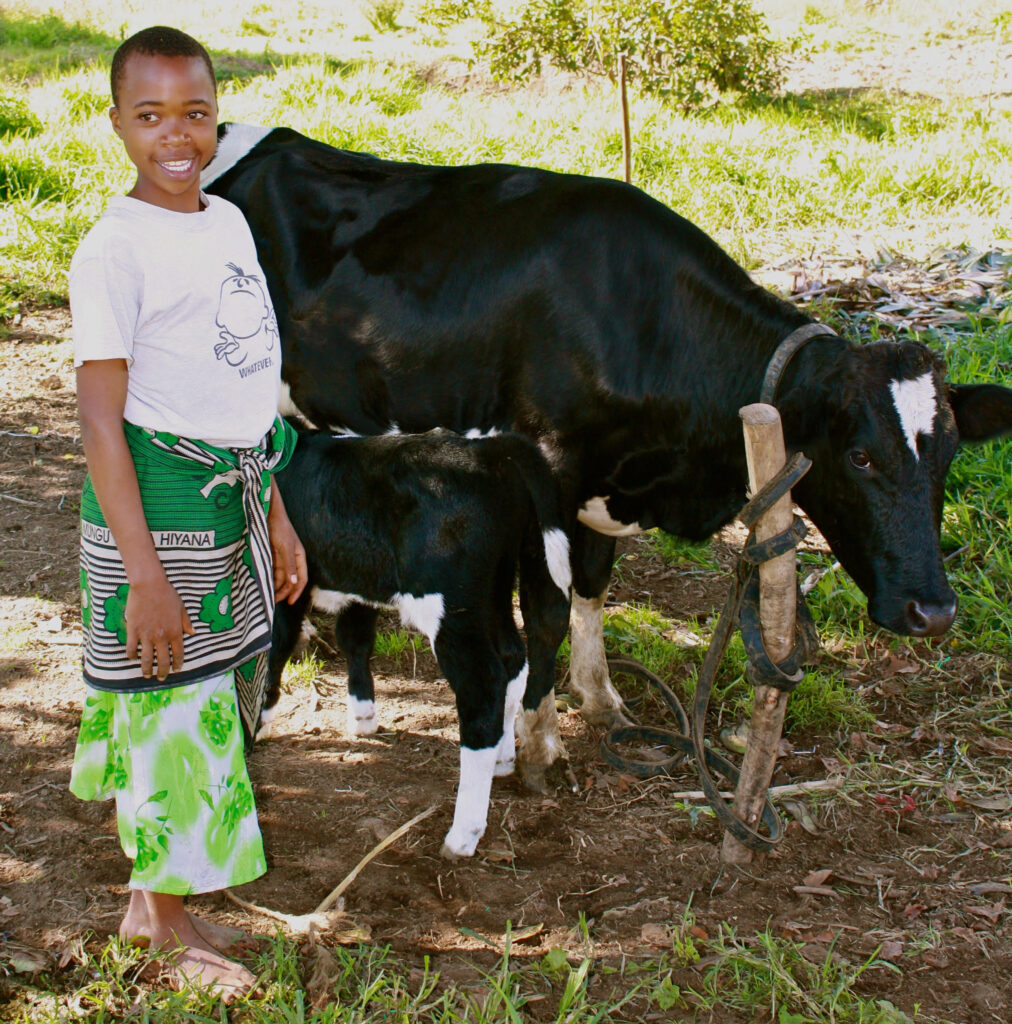
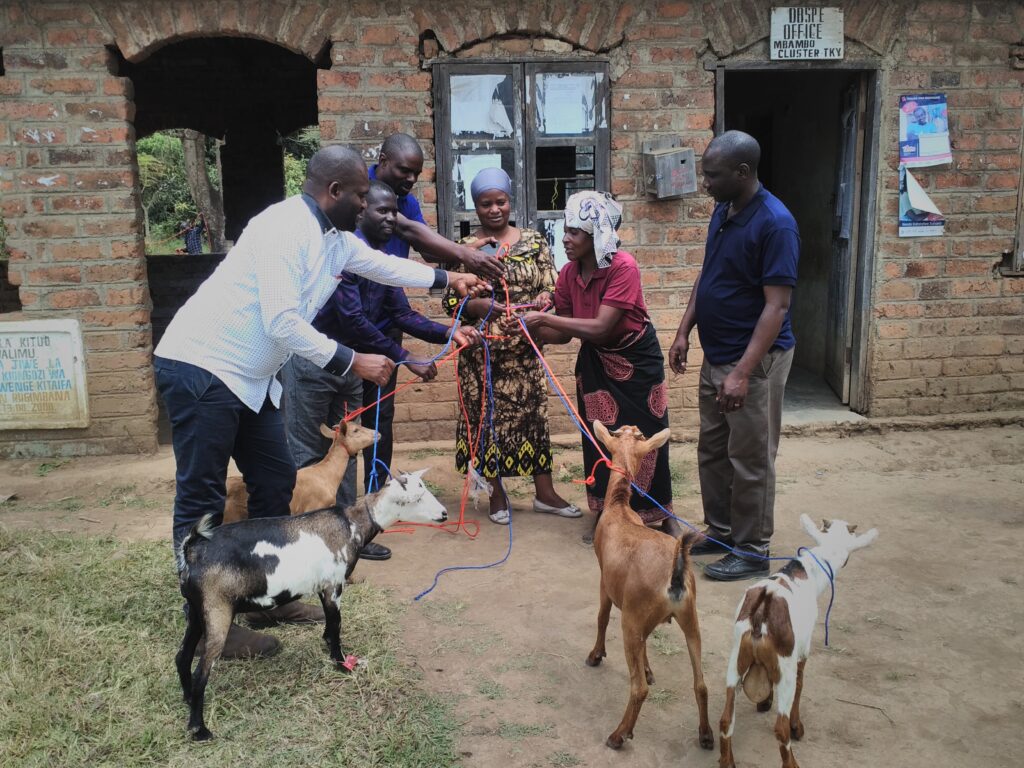
The co-ops help to create an active village economy, and they increase food, nutrition, and income security for families who also benefit from enhanced entrepreneurial skills and opportunities. Many co-op members reinvest their earnings in other income generating enterprises. In addition to becoming the key to economic security for families, these co-ops divert some of their profits to provide a long-term source of support for the MVCCs. In this way, the committees and co-ops are interdependent and reinforcing. Establishing standards for equal membership of women in our co-ops (as well as on the MVCCs) is a priority for Africa Bridge. At least 50% and up to 70% of co-op members are women. Through participation in these institutions, many women have gone from having no voice in village affairs to becoming leaders in their community.
Co-ops give a family that is living on a few dollars a day the opportunity to increase their incomes”
Barry Childs
Pass-on Model to Build Economic Independence
Africa Bridge combines its focus on MVCs with an agricultural pass-on model. Through the pass-on model, co-op recipients give their first and second calves (or seedlings from avocados, etc.) to another vulnerable family through the MVCC, doubling the number of co-op members. This process continues to repeat, increasing members continually and creating many more families with higher incomes. Future calves are kept by the family or sold. No additional capital is required from Africa Bridge – the pass-on process is uniquely regenerative.
Our findings suggest that Africa Bridge’s model is relatively unique within East Africa. Other models we identified did not combine the agricultural pass-on model (which provides assets with the expectation of repayment rather than without obligation) with a focus on benefiting MVCs. Many models include either one or the other, but the research conducted to date suggests this may be a unique aspect of the model.”
University of Texas and MarketShare Associates Independent Impact Analysis, 2021
Graduation
After five years, the ward graduates from Africa Bridge with the capacity to build future growth through our sustainable, regenerative process. At the end of five years, villages are far better off with nearly every child going to school and whole families with vastly improved diets, food security, and incomes. To date, six wards, 37 villages, and over 10,000 Most Vulnerable Children have benefited from our efforts. Over 80% of cooperatives and MVC committees formed since 2008 still exist today.
Introduction to Africa Bridge
We have developed a two page document that offers a general overview of Africa Bridge that you can download.
